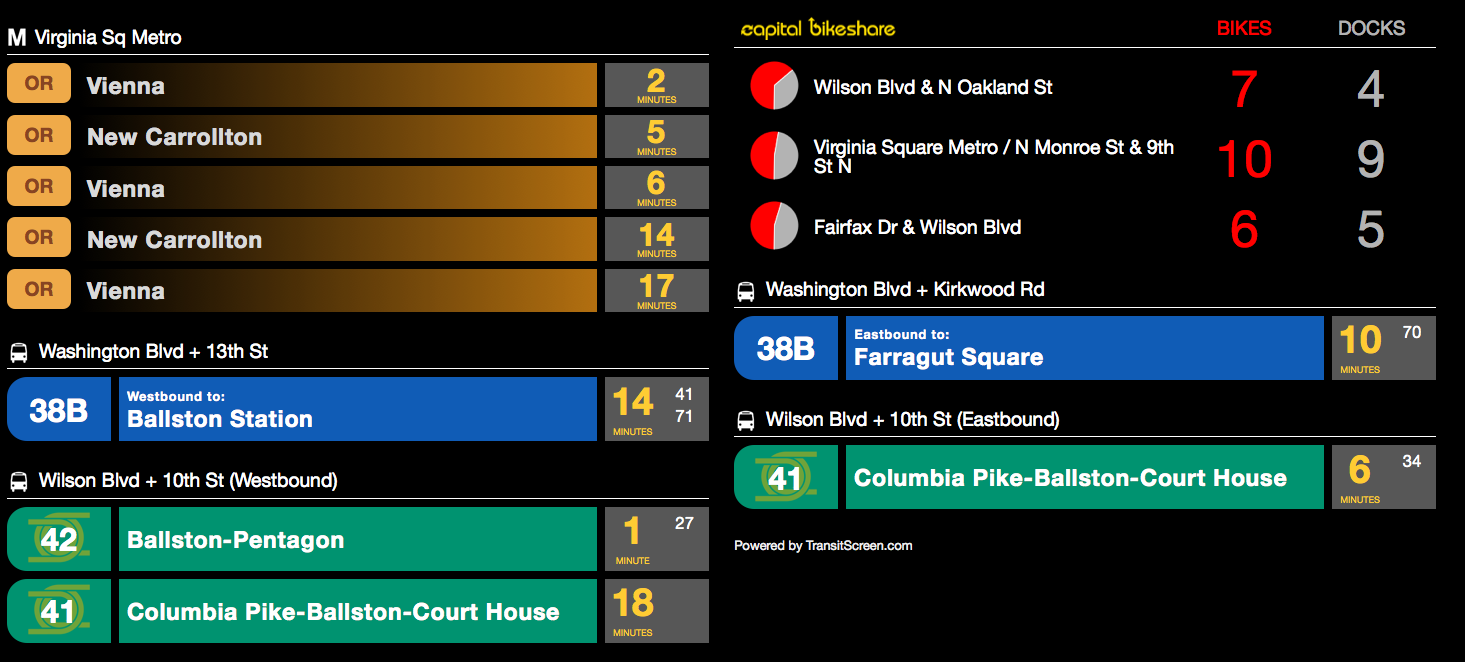While Transit Screen as a company is young, its project has been around for one year.
Each screen is a cloud-based display of the real-time public transportation feeds from the major public transit agencies in the Washington, D.C., area, including Capital Bikeshare inventory.
So if you’re at the Java Shack in Clarendon and need to know what time the Metro subway is leaving, take a look at the coffee shop’s Transit Screen to know whether you have time for that second Red Eye.
But lack of access to Maryland Transit Administration data is the one thing preventing Transit Screen from setting up in Baltimore city.
“With the exception of Charm City Circulator, Baltimore transit agencies have not given app developers such as Transit Screen access to the real-time data we need to build apps for Baltimore,” said Matt Caywood, president of the two-month-old startup.
The problem Caywood and his Transit Screen cofounder, Ryan Croft, are tackling is one that came up frequently during April’s Reinvent Transit hackathon at Betamore: namely, Baltimore residents would be more apt to take MTA buses so long as they knew around when those buses would be arriving.
As Caywood notes, only the Circulator bus system, with its XML feed, offers anything similar to real-time arrival and departure data, as Chris Whong‘s CirculatorBuddy map demonstrates. (MARCTracker offers a web display of departure times of MARC trains, along with their arrival status, that updates every few minutes.)
Supposing the MTA had a public feed from which Caywood and Croft could pull data, they’d be able to try to sell Transit Screen — which they do for $1,999 per software license — to businesses here.
There’s one other publicly accessible Transit Screen at the Arlington County Commuter Services, along with six other private Transit Screens installed in nonprofits and other D.C.-based agencies and companies, said Caywood.
Before you go...
Please consider supporting Technical.ly to keep our independent journalism strong. Unlike most business-focused media outlets, we don’t have a paywall. Instead, we count on your personal and organizational support.
Join our growing Slack community
Join 5,000 tech professionals and entrepreneurs in our community Slack today!

The person charged in the UnitedHealthcare CEO shooting had a ton of tech connections

From rejection to innovation: How I built a tool to beat AI hiring algorithms at their own game

Where are the country’s most vibrant tech and startup communities?

